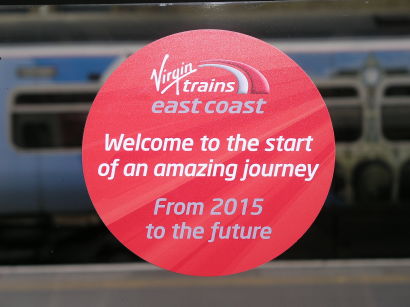THE bid for the Intercity East Coast franchise which was won by Stagecoach and Virgin was ‘quite ambitious’, a committee of MPs has been told. It has emerged that the Department for Transport did not expect the business plan to succeed in full.
The Commons Transport Committee has been taking evidence for its inquiry into the failure of the Virgin Trains East Coast franchise, which began at the start of March 2015 and ended on 24 June this year.
Stagecoach Group owned 90 per cent of the business and lost some £200 million in the collapse, which has been attributed to revenues being lower than forecast. It has been claimed that delayed Network Rail infrastructure upgrades were a contributory factor.
The total premiums at net present value in 2015 would have £2.3 billion, or £3.3 billion when inflation was taken into account between then and the original termination date in 2023.
The award of the franchise was a flagship event because it marked the end of six years of public control of East Coast, which began when the previous National Express franchise failed in 2009.
The DfT’s director of passenger services Simon Smith was one of the officials who gave evidence to the Committee. He said: “We thought Virgin Stagecoach’s bid was quite ambitious a the time we received it. We expected at the time that we evaluated their bid that revenue would be lower than they forecast.
“They had attributed quite ambitious growth to certain initiatives including things like their marketing and pricing strategy, and so on. We thought they would get some of that but we didn’t think they would get all of that.”
His colleague, Rail Group director general Polly Payne, added: “We want ambitious bids because they maximise the revenue we get for the taxpayer but we also want to ensure that if things don’t work out as we and the franchisee hope then we make sure both passengers and taxpayers are looked after.”
The DfT has insisted that taxpayers did not lose, because the contracted premiums were paid in full while the Virgin Trains East Coast franchise lasted.
The new arrangement of effective renationalisation on the route is set to continue until 2020, when the DfT intends to replace it with a new style of contract involving Network Rail, to be known as the East Coast Partnership.


